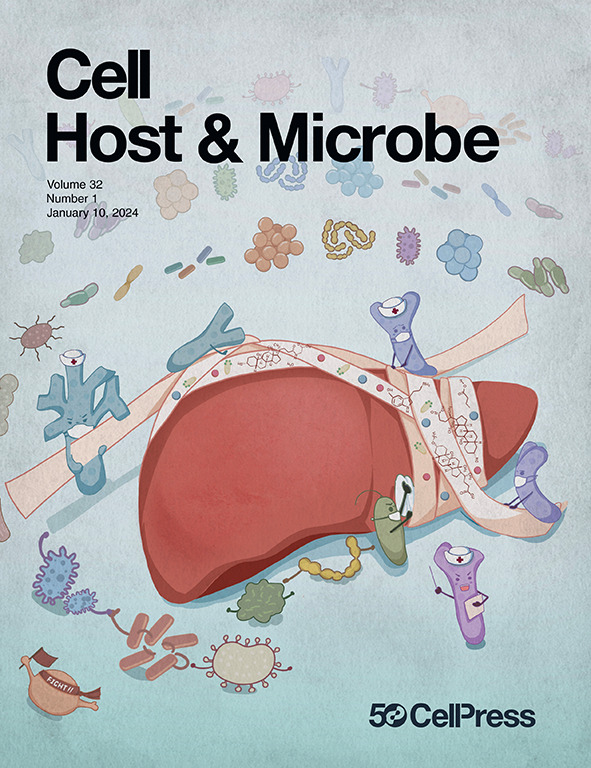β-碳酸氢盐抑制阴道炎症
IF 20.6
1区 医学
Q1 MICROBIOLOGY
引用次数: 0
摘要
阴道乳酸杆菌是宿主炎症的关键调节因子,但其作用机制仍未得到充分研究。在本期《细胞-宿主-微生物》(Cell Host & Microbe)杂志上,Glick 等人发现了阴道乳酸杆菌产生的抗炎效应物--β-carbolines 家族,并强调了它们作为阴道炎症性疾病治疗药物的潜力。本文章由计算机程序翻译,如有差异,请以英文原文为准。
Beta-carbolines suppress vaginal inflammation
Vaginal lactobacilli are key regulators of host inflammation, yet the mechanisms remain understudied. In this issue of Cell Host & Microbe, Glick et al. identify a family of beta-carbolines as anti-inflammatory effectors produced by vaginal Lactobacillus species, highlighting their potential as therapeutics for vaginal inflammatory disorders.
求助全文
通过发布文献求助,成功后即可免费获取论文全文。
去求助
来源期刊

Cell host & microbe
生物-微生物学
CiteScore
45.10
自引率
1.70%
发文量
201
审稿时长
4-8 weeks
期刊介绍:
Cell Host & Microbe is a scientific journal that was launched in March 2007. The journal aims to provide a platform for scientists to exchange ideas and concepts related to the study of microbes and their interaction with host organisms at a molecular, cellular, and immune level. It publishes novel findings on a wide range of microorganisms including bacteria, fungi, parasites, and viruses. The journal focuses on the interface between the microbe and its host, whether the host is a vertebrate, invertebrate, or plant, and whether the microbe is pathogenic, non-pathogenic, or commensal. The integrated study of microbes and their interactions with each other, their host, and the cellular environment they inhabit is a unifying theme of the journal. The published work in Cell Host & Microbe is expected to be of exceptional significance within its field and also of interest to researchers in other areas. In addition to primary research articles, the journal features expert analysis, commentary, and reviews on current topics of interest in the field.
 求助内容:
求助内容: 应助结果提醒方式:
应助结果提醒方式:


